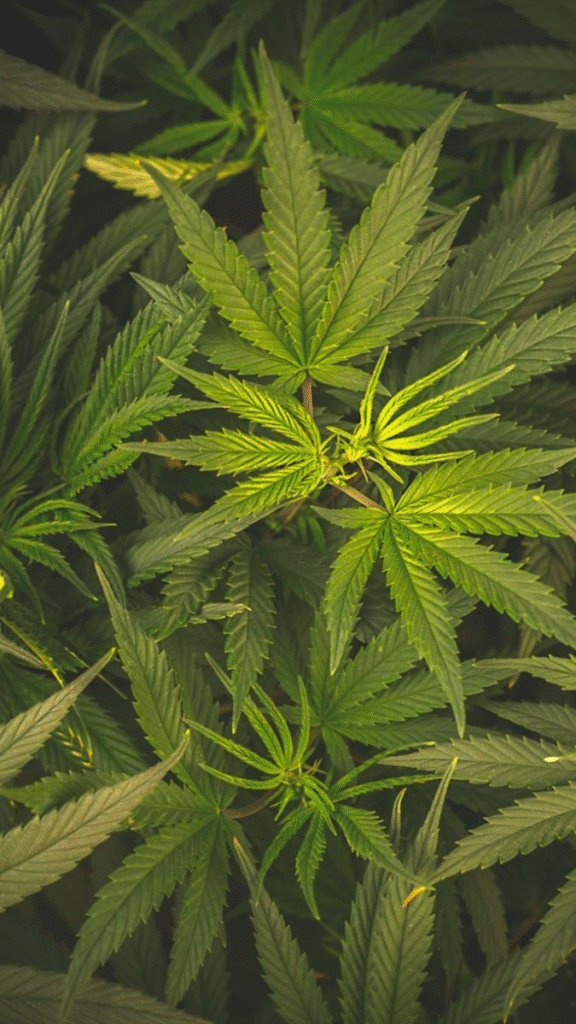
If you or someone you know uses cannabis regularly and experiences severe, cyclical nausea and vomiting, it could be a condition called cannabinoid hyperemesis syndrome (CHS). Here’s what you should know about this increasingly recognized—and often misunderstood—syndrome.
What Is Cannabinoid Hyperemesis Syndrome?
Cannabinoid hyperemesis syndrome (CHS) is a paradoxical condition that affects long-term, frequent cannabis users. While cannabis is widely known for its anti-nausea effects, CHS causes the opposite: intense nausea, vomiting, and abdominal pain that can be debilitating and lead to repeated emergency room visits.
Who Gets CHS?
CHS typically develops in people who have used cannabis regularly—often daily or weekly—for years. Most cases are seen in adults who started using cannabis as teenagers. However, not everyone who uses cannabis long-term will develop CHS, and researchers believe genetics might play a role in susceptibility.
Symptoms and Phases
CHS progresses through three main phases:
- Prodromal Phase
- Mild nausea, stomach discomfort, and anxiety about vomiting.
- Many people continue using cannabis, mistakenly believing it will help their symptoms.
- This phase can last for months or even years.
- Hyperemetic Phase
- Severe, repeated vomiting (sometimes up to five times an hour).
- Intense abdominal pain and dehydration.
- Compulsive hot showers or baths for symptom relief.
- Weight loss and fear of eating due to nausea
- Recovery Phase
- Symptoms resolve after stopping cannabis use.
- Recovery can take a few days to several months, depending on the individual
What Causes CHS?
The exact mechanism is still unclear, but it is thought to involve the endocannabinoid system, which regulates nausea, vomiting, and body temperature. Chronic cannabis use may overstimulate or dysregulate these receptors, leading to paradoxical symptoms
How Is CHS Diagnosed?
There is no single test for CHS. Diagnosis is based on:
- Symptoms (recurrent nausea, vomiting, abdominal pain)
- History of frequent cannabis use
- Relief from hot showers or baths
- Exclusion of other causes (such as infections, obstructions, or metabolic disorders)
Treatment and Management
- Cessation of Cannabis Use: The only definitive cure for CHS is to stop using cannabis. Symptoms usually improve within days to weeks after quitting
- Symptom Relief: Hot showers or baths can provide temporary relief.
- Medical Care: Severe cases may require hospitalization for IV fluids, electrolyte replacement, and medications to control nausea and vomiting
- Medications: Haloperidol, benzodiazepines, and topical capsaicin cream have shown some effectiveness in managing symptoms, but standard antiemetics often do not work
- Avoid Opioids: Opioids are not recommended and may be harmful for CHS
Complications
Untreated CHS can lead to:
- Severe dehydration
- Electrolyte imbalances
- Kidney injury
- Esophageal tears (from forceful vomiting)
Prevention
- Avoid frequent, long-term cannabis use.
- Recognize early symptoms and seek medical advice if you experience recurrent nausea and vomiting.
Educate yourself and others about the risks of chronic cannabis use
Final Thoughts
CHS is a real and potentially serious condition linked to chronic cannabis use. If you or someone you know experiences these symptoms, seek medical attention and consider stopping cannabis use. Early recognition and treatment can prevent complications and improve quality of life.
If you need help quitting cannabis, talk to a healthcare provider or contact addiction support services, such as the SAMHSA National Helpline at 1-800-662-4357
At Nervana Medical, our experienced QMPs are committed to more than just evaluating patients for medical cannabis eligibility—we prioritize your safety, education, and long-term success. By recognizing conditions like cannabinoid hyperemesis syndrome and discussing potential side effects upfront, we empower you to make informed decisions about your treatment. Whether you’re new to medical cannabis or exploring it as part of a broader care plan, our goal is to help you use it effectively and responsibly for the best possible outcomes.
Disclaimer: This blog is for informational purposes only and is not a substitute for professional medical advice, diagnosis, or treatment.
- https://my.clevelandclinic.org/health/diseases/21665-cannabis-hyperemesis-syndrome
- https://www.news-medical.net/news/20250220/Research-highlights-burden-of-cannabinoid-hyperemesis-syndrome.aspx
- https://www.webmd.com/mental-health/addiction/cannabinoid-hyperemesis-syndrome
- https://www.frontiersin.org/journals/toxicology/articles/10.3389/ftox.2024.1465728/full
- https://www.cedars-sinai.org/health-library/diseases-and-conditions/c/cannabinoid-hyperemesis-syndrome.html
- https://en.wikipedia.org/wiki/Cannabinoid_hyperemesis_syndrome
- https://pmc.ncbi.nlm.nih.gov/articles/PMC11597608/
- https://pmc.ncbi.nlm.nih.gov/articles/PMC7599351/
- https://pmc.ncbi.nlm.nih.gov/articles/PMC5851514/
- https://www.contemporarypediatrics.com/view/diagnosis-and-treatment-of-cannabinoid-hyperemesis-syndrome
- https://pubmed.ncbi.nlm.nih.gov/28370228/
- https://pubmed.ncbi.nlm.nih.gov/35311429/
- https://phillyintegrative.com/blog/cannabinoid-hyperemesis-syndrome-insights-from-recent-research
- https://portal.ct.gov/cannabis/knowledge-base/articles/education-and-prevention/cannabinoid-hyperemesis-syndrome
- https://pmc.ncbi.nlm.nih.gov/articles/PMC4361109/
- https://www.uchealth.org/today/what-is-chs-cannabinoid-hyperemesis-syndrome-leading-cause-of-marijuana-related-er-visits/
- https://www.ncbi.nlm.nih.gov/books/NBK549915/
- https://gastro.org/news/cannabinoid-hyperemesis-syndrome-clinical-practice-update/
- https://www.hopkinsmedicine.org/-/media/files/allchildrens/clinical-pathways/chs_pathway-5_19_23.pdf

